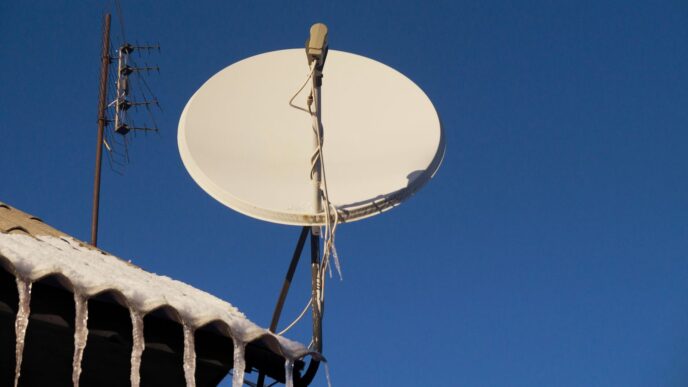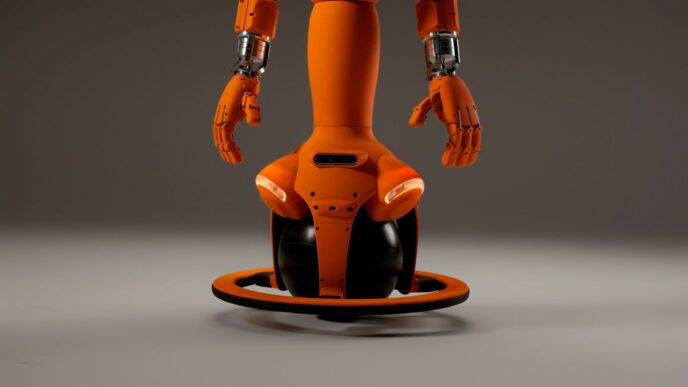Rocket Lab Acquires Planetary Systems Corporation
So, Rocket Lab just announced they’ve officially bought Planetary Systems Corporation, or PSC as they call it. This is a pretty big deal for Rocket Lab, which has been busy buying up other companies lately to build out its space systems side of things. They’re trying to be more than just a launch company; they want to handle the whole space mission, from getting stuff into orbit to the actual satellites themselves.
This PSC deal is worth about $42 million in cash, plus over 1.7 million shares of Rocket Lab stock. There’s even a chance for more shares later on, depending on how well PSC does financially in the next couple of years. It sounds like a solid move to get more hardware and know-how into their own operations.
PSC is known for making the bits that separate satellites from rockets once they’re in space. Think of it like the little mechanisms that let go of things at just the right time. They’ve got a really good track record, apparently 100% success on over 100 missions. That’s pretty impressive, considering how tricky space stuff can be. They’ve worked with a lot of big names too, like SpaceX, ULA, and even NASA on missions like the Space Shuttle and the ISS. It seems like they’re a pretty trusted name in the industry.
Here’s a quick look at the financial side:
| Component | Value |
|---|---|
| Cash Payment | $42 million |
| Stock Issued | 1,720,841 shares |
| Potential Earnout | Up to 956,023 additional shares |
This acquisition fits right into Rocket Lab’s plan to have everything done in-house. They’ve already picked up companies that do flight software and other satellite parts. So, adding PSC’s separation systems just makes their whole operation more complete. It means they can control more of the process, which should make things smoother and maybe even cheaper down the line. It’s all about building that end-to-end capability, from the rocket to the satellite and everything in between.
Planetary Systems Corporation’s Proven Expertise
A Leader in Spacecraft Separation Systems
Planetary Systems Corporation (PSC) has built a solid name for itself over the last two decades. They specialize in making the hardware that safely separates satellites from rockets once they’re in space. Think of it as the critical handshake that lets spacecraft go their separate ways after a long ride. Their gear is designed to be reliable and cost-effective, which is a big deal when you’re talking about launching expensive equipment into orbit. It’s not just about getting things up there; it’s about getting them there safely and efficiently.
100% Mission Success Heritage
What really stands out about PSC is their track record. They’ve managed to achieve a 100% success rate on every single mission they’ve been a part of. That’s pretty impressive when you consider how many things can go wrong during a space launch. This means that every time their separation systems have been used, they’ve worked exactly as intended. This kind of reliability is gold in the space industry.
Here’s a look at who trusts PSC’s technology:
- Major Launch Providers: Companies like SpaceX, United Launch Alliance, and Northrop Grumman have all used PSC’s systems.
- Rocket Lab: Naturally, Rocket Lab itself has been a customer.
- Government Agencies: NASA has relied on their hardware for missions, including the Space Shuttle and the International Space Station.
- International Partners: Organizations like Arianespace, ISRO, and JAXA have also incorporated PSC’s technology into their launches.
This broad adoption across different types of missions and by various space players really highlights the trust placed in PSC’s engineering and manufacturing capabilities.
Trusted by Major Space Industry Players
It’s not just about the numbers, though. The fact that so many big names in the space sector turn to PSC speaks volumes. When you have organizations like NASA, SpaceX, and ULA putting their missions in your hands, it means your products are top-notch. They’ve been involved in over 100 missions, and that experience means they know what it takes to make hardware that performs under the extreme conditions of spaceflight. This long history of successful deployments makes them a go-to company for critical separation technology.
Synergies Between Rocket Lab and Planetary Systems Corporation
So, Rocket Lab buying Planetary Systems Corporation (PSC) makes a lot of sense when you look at what each company does. Rocket Lab is building up its own manufacturing capabilities for everything space-related, from the rockets themselves to the satellites. PSC, on the other hand, is really good at making the bits that let satellites detach from the rocket once they’re in space. They’ve got a solid track record, too – over 100 missions with zero problems. That’s pretty impressive.
This deal means Rocket Lab can now bring that separation tech in-house. It’s like finally getting that one specialized tool you needed to finish a big project. Plus, PSC’s hardware is going to be a big help as Rocket Lab works on its Photon spacecraft. Think of it as adding a really reliable component to a new vehicle design.
It’s not just a one-way street, though. PSC gets access to Rocket Lab’s bigger manufacturing setup. This should help them build more of their separation systems and maybe even improve how they make them. It’s a good way for PSC to grow its technical side without having to start from scratch.
Basically, this acquisition helps Rocket Lab become more of a one-stop shop for space missions. They can control more of the process, which usually means things can be done more efficiently and maybe even cheaper. It’s all about making space more accessible, and having PSC’s reliable separation tech is a big piece of that puzzle.
Impact on the Space Industry
This whole deal between Rocket Lab and Planetary Systems Corporation (PSC) is pretty big news for anyone watching the space industry. It’s not just about Rocket Lab getting bigger; it’s about how this kind of consolidation can change things for everyone trying to get stuff into orbit.
Think about it: PSC makes these separation systems. You know, the bits that actually let your satellite go when the rocket has done its job. They’ve got a really solid history, with over 100 missions under their belt and a perfect track record. That’s not nothing. They’ve worked with pretty much everyone, from NASA to the European Space Agency, and even smaller outfits.
So, what does this mean for the rest of us? Well, for starters, it makes getting to space a bit simpler and, hopefully, cheaper. When one company controls more of the pieces needed for a launch, they can streamline the process. It’s like having all your tools in one toolbox instead of having to borrow them from different neighbors. This could mean fewer delays and maybe even lower costs for satellite builders.
Here’s a quick look at what PSC brings to the table:
- 100% Mission Success: Every single mission they’ve been part of has worked perfectly.
- Broad Customer Base: They’ve supplied systems for major players like SpaceX, ULA, and even international agencies like JAXA and ISRO.
- Proven Technology: Their separation systems are reliable and have been used on a wide variety of rockets and spacecraft.
This acquisition also pushes Rocket Lab further into being a one-stop shop for space missions. They’re not just launching rockets anymore; they’re building satellites and now making key components for them. This kind of vertical integration is a trend we’re seeing more of, and it’s likely to spark more new ideas in how we explore space and use it for things like Earth observation or communication. It’s a move that could really shake things up, making space more accessible for a lot of different kinds of projects.
Leadership and Future of Planetary Systems Corporation
It looks like the folks at Planetary Systems Corporation (PSC) are sticking around to keep doing what they do best. Mike Whalen, who was already leading PSC, is staying on as the head honcho. And Walter Holemans, the guy who started it all and is the chief engineer, is also sticking around. That’s good news because PSC has a pretty solid track record.
Continued Leadership Under Mike Whalen
Mike Whalen is going to keep steering the ship at PSC. He’s been there, done that, and now he’s part of the bigger Rocket Lab family. It seems like Rocket Lab wants to keep the existing management structure in place, which makes sense. They bought PSC for its know-how, so keeping the people who have that know-how is probably a smart move.
Walter Holemans Remains Chief Engineer
Walter Holemans, the founder and the brains behind PSC’s separation systems, is staying on as Chief Engineer. He’s been in this game for over 20 years, and his company has never had a mission failure. That’s a pretty impressive stat. Having him continue to lead the engineering side means that Rocket Lab is keeping that deep well of experience right where it is. It’s not like they’re just absorbing the company and tossing out the old guard; they’re bringing that expertise into their own operations.
Scaling Manufacturing for Future Missions
So, what’s next for PSC? Well, the big plan is to ramp up their manufacturing. They’ve got a history of building reliable separation systems, and now they’ll have Rocket Lab’s backing to build more of them. Think about it: more missions are launching all the time, and each one needs these separation systems. PSC’s goal is to meet that growing demand. They’re looking to expand their production capabilities to support all the new missions Rocket Lab and its customers have planned. It’s all about getting ready for what’s coming next in space.
Wrapping It Up
So, Rocket Lab buying Planetary Systems Corporation is a pretty big deal. It means Rocket Lab is really serious about being a one-stop shop for space missions. They’re bringing in PSC’s solid separation tech, which has a perfect track record, to go along with their rockets and spacecraft. This move helps PSC get bigger and reach more customers too. It looks like a smart play for both companies, aiming to make getting into space simpler and cheaper for everyone involved. We’ll have to watch and see how this partnership plays out in the coming years.










